
Three bassists converged on WNUR Studios, in Evanston, Illinois in 1998 to record these tracks, finally released after 16 years: 5 freely improvised trio sessions, 6 miniatures suggested by Kowald and performed by the trio, and 6 duos between Kowald and Lonberg-Holm.
In Stock
Quantity in Basket: None
Log In to use our Wish List
Shipping Weight: 3.00 units
EU & UK Customers:
Discogs.com can handle your VAT payments
So please order through Discogs
Sample The Album:
Peter Kowald-bass
Kent Kessler-bass
Fred Lonberg-Holm-cello
Click an artist name above to see in-stock items for that artist.
UPC: B074292WY3
Label: Corbett vs. Dempsey
Catalog ID: CvsDCD016
Squidco Product Code: 19869
Format: CD
Condition: New
Released: 2014
Country: USA
Packaging: Cardboard Gatefold
Recorded at WNUR Studios, in Evanston, Illinois, on September 24th, 1998 by John Corbett.
"In 1998, at WNUR Radio, Evanston, the legendary German bassist Peter Kowald met two Chicagoans in the studio for a brisk set of string trios. Fellow-bassist Kent Kessler and cellist Fred Lonberg-Holm, essential members of the Chicago scene, are well known as international improvisors too, and the threesome dug in for a fierce face-off.
The session was closely recorded in the studio's intimate confines, which could barely contain their energy. Kowald proposed a set of six miniatures, all ranging around a minute in length, as a counterpoint to the longer tracks. When Kessler left, Kowald and Lonberg-Holm stayed on playing a few duets, more conversational in tone.
The musicians all loved the results, a CD was planned, delayed, as happens, and then Kowald died suddenly in 2002, almost to the day four years since recording Flats Fixed. CvsD is honored to finally release this glorious music, which had been prepared and shelved more than a decade ago. Dedicated to the memory of Comrade Kowald."-John Corbett

The Squid's Ear!
Artist Biographies
• Show Bio for Peter Kowald "Born 1944 in Germany, died 21 September 2002 New York City; double bass, voice, tuba. Peter Brötzmann (Corbett, 1994) recounted that 'there was this young guy trying to play the bass, who was Mr Kowald, at that time seventeen years old. Peter lived with his parents. I had my little studio, so he was always hanging out at my place. But he had to be at home at 10.00, he was drinking milk. But we changed that, very soon. His parents were always very angry with me, because he never showed up at home anymore, he dropped studies of ancient languages, Greek and all that.' By this time (1962) Peter Kowald had been playing bass for two years and, with different drummers the two Peters were playing Mingus, Ornette, and Miles Davis things as well as listening to Coltrane, Stockhausen, Cage et al. Kowald was part of the European tour undertaken by the Carla Bley/Michael Mantler band in 1966 (also featuring Brötzmann) and then came work with other German musicians, membership of the Globe Unity Orchestra and the first recordings: Globe Unity, For Adolphe Sax and Summer 1967, recorded during a brief vacation in London. In particular, Evan Parker credits this visit to London for his invitation to play in the Pierre Favre/Irene Schweizer quartet and his subsequent longstanding involvement with German (and other European) musicians. Kowald's work with Brötzmann continued - on and off - on record at least, to the time of Kowald's death and included the Cooperative Trio with Andrew Cyrille, a duo on the Duos project and a recent mix of free jazz, hip-hop and rap. Peter Kowald was a member of Globe Unity Orchestra for 12 years (1966 to 1978) and for much of this time played less of a side-man role and more of an equal partner - for example, conducting the band - with the person to whom the group has become most associated, Alex von Schlippenbach. His influence is particularly noticeable on Jahrmarkt/Local fair where the two sides of composition are by Kowald (as is the second side of Live in Wuppertal and he is also credited, along with Paul Lovens as 'producing' the record, presumably sorting out the sprawling theatricality and poor sound into two 'meaningful' fragments. In his notes to 20th anniversary, Schlippenbach emphasises the importance of Kowald in creating a programme that became a lot more 'colourful'; while further pointing out that he and Kowald gradually drifted further apart 'until one fine evening after lengthy discussions which resulted in a fight in a pub in Wuppertal, this chapter also closed'. However, before this ending, from 1973 to 1978, Kowald also worked with the Schlippenbach trio (Schlippenbach/ Parker/Paul Lovens), turning it for much of this time into a regular quartet. Throughout his career, Peter Kowald worked with a wide variety of improvising musicians worldwide and in many considered and unusual situations. He recorded bass duets with Barry Guy, Barre Phillips, Peter Jacquemyn, Maarten Altena, Damon Smith and William Parker, released two solo bass recordings, and had regular groups with Leo Smith and Günter Sommer; with Joëlle Léandre and dancer Anne Martin (Trio Tartini); with dancers Cheryl Banks and Arnette de Mille and cellist Muneer Abdul Fataah (Music and Movement Improvisation); a trio with pianist Curtis Clark; a trio with Canadian alto saxophonist Yves Charuest and Louis Moholo; and Principle Life with Jeanne Lee, Klaus Hovman, and Marilyn Mazur. During the period 1980 to 1985 he was a member of the London Jazz Composers' Orchestra. He has spent periods in the US and in Japan and recorded three duo LPs (two CDs) with US, European and Japanese musicians. He also lived in Greece and similarly played and recorded with the Greek musicians Floros Floridis and Ilias Papadopoulos. By contrast, the 12 months May 1994 to May 1995 was designated Kowald's 'Year at home' project which comprised a mixture of solo works - out of which, to some extent, the last solo CD grew (Was da ist) - and group performances. In addition, Peter Kowald collaborated extensively with poets and artists and with the dancers Gerlinde Lambeck, Anne Martin, Tadashi Endo, Patsy Parker, Maria Mitchell, Sally Silvers, Cherly Banks, Arnette de Mille, Sayonara Pereira, and Kazuo Ohno. Specific works included Die klage der kaiserin (1989) with Pina Bausch, Short pieces (since 1989) with Jean Sasportes, The spirit of adventure (1990) with Anastasia Lyra, Wasser in der hand (1990/91) with Christine Brunel, and Futan no sentaku/The burden of choice (1990/91) with Min Tanaka and Butch Morris." ^ Hide Bio for Peter Kowald • Show Bio for Kent Kessler "Kent Kessler (born January 28, 1957 in Crawfordsville, Indiana) is an American jazz double-bassist, best known for his work in the Chicago avant-garde jazz scene. Kessler, born in Crawfordsville, Indiana, grew up on Cape Cod and began playing trombone at age ten. He and his family moved to Chicago when he was 13, and a few years later Kessler became intensely interested in jazz. While attending St. Mary Center for Learning High School, he began taking lessons from Kestutis Stanciauskas (Streetdancer) in electric bass and jazz theory in the middle of the 1970s. In 1977 he formed the ensemble Neutrino Orchestra with percussionist Michael Zerang and guitarists Dan Scanlan and Norbert Funk. He spent three months in Brazil during 1980-81 and spent time studying intermittently at Roosevelt University in Chicago; he and Zerang also formed a group called Musica Menta, which played regularly at Link's Hall. Kessler began playing double bass in the 1980s and it became his primary instrument when he was asked in 1985 to join the NRG Ensemble, who toured Europe and recorded for ECM Records under the leadership of Hal Russell until his death in 1992. In 1991, he gigged with Zerang and guitarist Chris DeChiara; in need of a hornist, they called Ken Vandermark, who had been considering leaving the Chicago scene. Kessler and Vandermark would go on to collaborate extensively on free jazz and improvisational projects such as the Vandermark 5, the DKV Trio and the Steelwool Trio. In the 1990s and afterwards he worked with Chicago musicians such as Hamid Drake, Fred Anderson, and Joe McPhee, and also with European musicians such as Peter Brötzmann, Mats Gustafsson, Misha Mengelberg, and Luc Houtkamp. In 2003, Kessler released a solo album, Bull Fiddle, on Okka Disk. Kessler performs alone on nine of the twelve tracks, and with Michael Zerang on three." ^ Hide Bio for Kent Kessler • Show Bio for Fred Lonberg-Holm "Fred Lonberg-Holm (born 1962) is an American cellist based in Chicago. He relocated from New York City to Chicago in 1995. Lonberg-Holm is most identified with playing free improvisation and free jazz. He is also a composer of concert works. As a session musician and arranger, he is credited on many rock, pop, and country records. Lonberg-Holm currently leads the Valentine Trio, with Jason Roebke (bass) and Frank Rosaly (drums). This jazz trio performs original compositions as well as tunes by both jazz composers (e.g. Sun Ra) and pop songwriters (e.g. Jeff Tweedy, Syd Barrett). The group released its first album Terminal Valentine, in 2007, which was reviewed by AllAboutJazz critic Nils Jacobson. He coordinates and directs performances of his Lightbox Orchestra, an improvising ensemble with a flexible, ever-changing membership. Lonberg-Holm does not play an instrument in this group, but rather conducts its non-idiomatic improvisations via the "lightbox" and by holding up handwritten signs. The lightbox contains a light bulb for each musician which Lonberg-Holm switches on or off to suggest when they should play. Collective groups of which Lonberg-Holm is a member include Terminal 4 who released an album, in 2003, called When I'm Falling that received four and a half stars, and AMG Album Pick by Allmusic, and it was reviewed by Allmusic's Joslyn Layne, The Boxhead Ensemble, Pillow, the Lonberg-Holm/Kessler/Zerang trio (with Kent Kessler and Michael Zerang), and the Dörner/Lonberg-Holm duo (with Axel Dörner). Among groups led by other people, he is a member of the Vandermark 5, the Joe McPhee Trio, the Peter Brötzmann Chicago Tentet, Keefe Jackson's Fast Citizens, and Ken Vandermark's Territory Band. When he lived in New York, Lonberg-Holm frequently collaborated with the rock group God Is My Co-Pilot pianist and composer Anthony Coleman as well as multi-instrumentalist Paul Duncan of Warm Ghost. In Chicago, he has worked with Jim O'Rourke, Bobby Conn (on "Llovessonngs" [1999] and "The Golden Age" [2001]), The Flying Luttenbachers, Lake Of Dracula, Wilco, Rivulets, Mats Gustafsson, Sten Sandell, Jaap Blonk, John Butcher, and a great many others. Lonberg-Holm's concert works have been premiered by William Winant, Carrie Biolo, the Austin New Music Co-Op, Subtropics Ensemble, Duo Atypica, the Schanzer/Speach Duo, New Winds, Paul Hoskin, Kevin Norton, the E.S.P. Ensemble, and others. His scores for dance have been performed at the Brooklyn Academy of Music and Dance Theater Workshop as well as many other venues. He is a former composition student of Anthony Braxton and Morton Feldman. He performed improvised music in the role of a troubled composer who finds inspiration in the love of a couple he spots on the street in a short film for the Playboy channel." ^ Hide Bio for Fred Lonberg-Holm
11/18/2024
Have a better biography or biography source? Please Contact Us so that we can update this biography.
11/18/2024
Have a better biography or biography source? Please Contact Us so that we can update this biography.
11/18/2024
Have a better biography or biography source? Please Contact Us so that we can update this biography.
Track Listing:
1. FF 1 7:10
2. FF 2 5:58
3. FF 3 3:23
4. FF 4 17:23
5. Miniature 1 0:55
6. Miniature 2 1:02
7. Miniature 3 1:09
8. Miniature 4 1:00
9. Miniature 5 1:17
10. Miniature 6 2:19
11. FF 6 15:10
12. b & c 1 4:29
13. b & b 3:23
14. b & c 2 5:42
15. b & c 3 3:48
16. b & c 4 2:51
Improvised Music
Free Improvisation
European Improvisation, Composition and Experimental Forms
Chicago Jazz & Improvisation
Trio Recordings
Kowald, Peter
Staff Picks & Recommended Items
Search for other titles on the label:
Corbett vs. Dempsey.

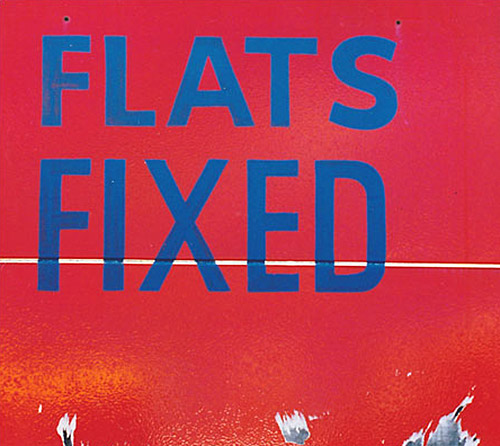



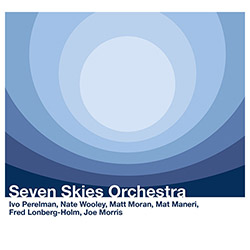

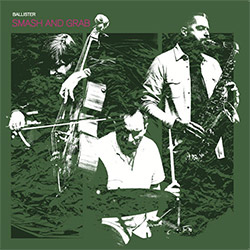
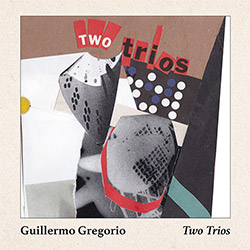

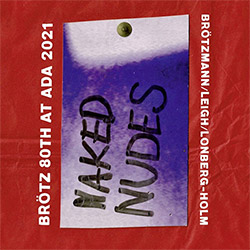
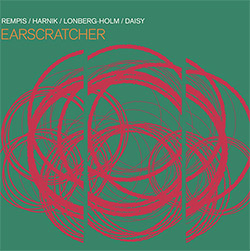

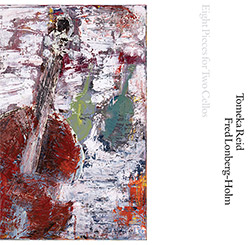

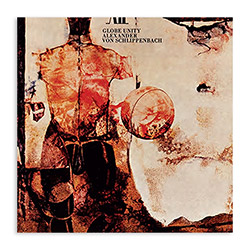
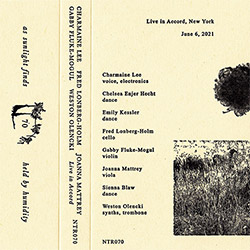
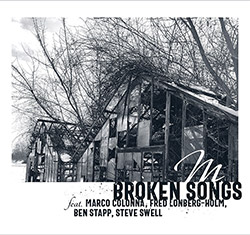


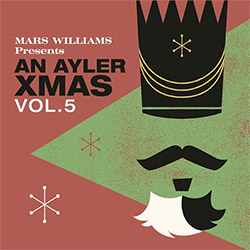


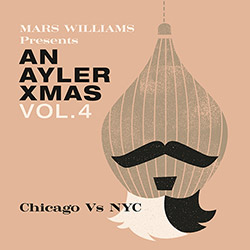
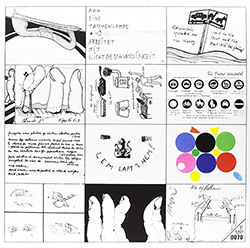
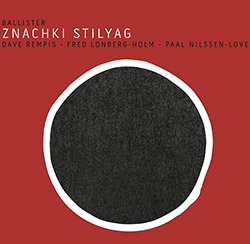
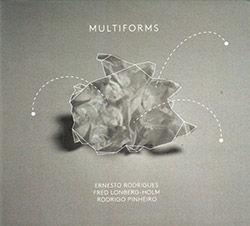















![Barker / Parker / Irabagon: Bakunawa [VINYL]](https://www.teuthida.com/productImages/misc4/35533.jpg)
![Blaser, Samuel / Marc Ducret / Peter Bruun: Dark Was The Night, Cold Was The Ground [VINYL 10-inch]](https://www.teuthida.com/productImages/misc4/35492.jpg)










![Warren, Kenny (Warren / Hoffman / Ellman): Sweet World [VINYL]](https://www.teuthida.com/productImages/misc4/35451.jpg)


![Blake, Ran / Dave Knife Fabris: Live Amsterdam 2006, First Visit [CD + POSTCARDS]](https://www.teuthida.com/productImages/misc4/35275.jpg)
![Sanna, Claudio: Compositori Sardi Contemporanei II [2 CDs]](https://www.teuthida.com/productImages/misc4/35317.jpg)












![Nevai, Nandor: <<The PRICE of FRONTIER>> Book 1: FULK [BOOK + 4 CDs]](https://www.teuthida.com/productImages/misc4/35464.jpg)
![Nevai, Nandor: <<The PRICE of FRONTIER>> Book 2: MARTIAL [BOOK + 4 CDs]](https://www.teuthida.com/productImages/misc4/35465.jpg)
![Nevai, Nandor: <<The PRICE of FRONTIER>> Book 3: JASSOM [BOOK + 4 CDs]](https://www.teuthida.com/productImages/misc4/35466.jpg)
![Nevai, Nandor: <<The PRICE of FRONTIER>> Book 4: HARD-WON [BOOK + 4 CDs]](https://www.teuthida.com/productImages/misc4/35467.jpg)





![DNS: Taking Big Bites Of The Khandas Three Cafes Deep [2 CDs]](https://www.teuthida.com/productImages/misc4/35334.jpg)




![Cleaver, Gerald: The Process [VINYL]](https://www.teuthida.com/productImages/misc4/34966.jpg)




![Alva Noto: HYbr:ID II [VINYL 2 LPs]](https://www.teuthida.com/productImages/misc4/35201.jpg)

![Baron, Derek / Luke Martin: Distinct and Concealed [CASSETTE + DOWNLOAD]](https://www.teuthida.com/productImages/misc4/35079.jpg)

![Lyle, Erica Dawn : Colonial Motels [CASSETTE + DOWNLOAD]](https://www.teuthida.com/productImages/misc4/35080.jpg)







![Alva Noto: HYbr:ID III [VINYL 2 LPs]](https://www.teuthida.com/productImages/misc4/35011.jpg)
![Kubisch, Christina / Trondheim Voices: Stromsanger 2022 For Six Voices And Electromagnetic Waves [VINYL]](https://www.teuthida.com/productImages/misc4/34628.jpg)








![Zurria, Manuel: Fame di Vento [3 CDs]](https://www.teuthida.com/productImages/misc4/35167.jpg)

![Granberg, Magnus / Nattens Inbrott / Skogen: Holde Traume, Kehret Wieder! [2 CDs]](https://www.teuthida.com/productImages/misc4/35038.jpg)
![Frey, Jurg: Outermost Melodie [2 CDs]](https://www.teuthida.com/productImages/misc4/35039.jpg)

![Pavone, Jessica: Reverse Bloom [VINYL]](https://www.teuthida.com/productImages/misc4/34895.jpg)




![Modney (Modney / Wooley / Gentile / Roberts / Pluta / Symthe / ...): Ascending Primes [2 CDs]](https://www.teuthida.com/productImages/misc4/34852.jpg)








![Elephant9 with Terje Rypdal: Catching Fire [VINYL 2 LPs]](https://www.teuthida.com/productImages/misc4/35355.jpg)
![Deerlady (Obomsawin, Mali / Magdalena Abrego): Greatest Hits [VINYL]](https://www.teuthida.com/productImages/misc4/34876.jpg)




![Haino, Keiji: Black Blues [2 CDs]](https://www.teuthida.com/productImages/misc4/35109.jpg)



![Surplus 1980: Illusion of Consistency [CD]](https://www.teuthida.com/productImages/misc4/35069.jpg)
![Staiano, Moe: Away Towards the Light [VINYL + DOWNLOAD]](https://www.teuthida.com/productImages/misc4/35037.jpg)




![Caveira (Gomes / Sousa / Abras / Ferrandini): Ficar Vivo [VINYL]](https://www.teuthida.com/productImages/misc4/34643.jpg)
![Gregg, J. J. / David Van Auken: Lunar Prairie [CD w/ DOWNLOAD]](https://www.teuthida.com/productImages/misc4/34611.jpg)

![Coultrain: Mundus [VINYL]](https://www.teuthida.com/productImages/misc4/32439.jpg)
![Mattin: Songbook #6 [VINYL]](https://www.teuthida.com/productImages/misc4/27317.jpg)
![Punkappella: Wake Up [7-inch VINYL]](https://www.teuthida.com/productImages/misc4/17519.jpg)
![Residents, The: WARNING: UNiNC.: Live And Experimental Recordings 1971-1972 [VINYL 2 LPs]](https://www.teuthida.com/productImages/misc4/31521.jpg)
![Coultrain: Phantasmagoria [VINYL]](https://www.teuthida.com/productImages/misc4/30142.jpg)
![Lennon, Sean Ono: Asterisms [VINYL]](https://www.teuthida.com/productImages/misc4/34517.jpg)

![Rotem Geffen: The Night Is The Night [VINYL]](https://www.teuthida.com/productImages/misc4/34631.jpg)
![Coley, Byron: Dating Tips for Touring Bands [VINYL]](https://www.teuthida.com/productImages/misc4/17906.jpg)

![Lost Kisses: My Life is Sad & Funny [DVD]](https://www.teuthida.com/productImages/misc4/lostKissesDVD.jpg)